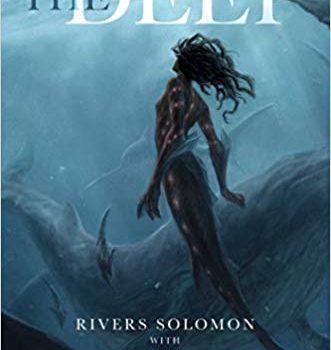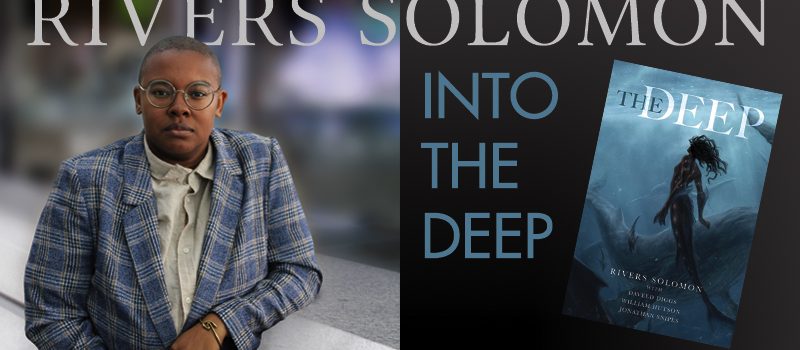


She does this so that the rest of her people can live happy, free lives, without the burden of the past’s horrors bogging them down. Here, Yetu is the one who stores the memories of her people’s pasts – of the African mothers that lost their lives, of the whales they lived with and learned from, of the magic and power that created them. When reading, this one reminded me a little of The Giver in terms of a single person in a society being responsible for some secret and incredible knowledge that keeping the rest of the community ignorant to somehow benefits. This premise of an entire race and culture being created from the poor women thrown off the ships is so intriguing and incredible to me, and the resilience and uniqueness of these people – especially of Yetu, the memory keeper – was amazing. The narrator gives you a lot of information and sort of throws you into the rich world of the Wajinru, a mermaid-like race that are descended from pregnant slave women thrown overboard while en route to the ship’s destinations. I read this one back in February for Black History Month, and while I understand this is fictional and about mermaid people, it still had a lot of really important messages and themes regarding race and the differences between types of people. Such a cool thing, and I’d definitely recommend listening if you’re into really cool but sort of experimental music! I read about what inspired the song, and love that this story has been creatively interpreted by so many different people in different ways.

I only discovered this one because of clipping.’s song – which you can listen to by clicking here – which I absolutely love, and wanted more of. “Forgetting was not the same as healing.” Inspired by a song produced by the rap group Clipping for the This American Life episode “We Are In The Future,” The Deep is vividly original and uniquely affecting.

If they are all to survive, they’ll need to reclaim the memories, reclaim their identity-and own who they really are. Yetu will learn more than she ever expected to about her own past-and about the future of her people. And so, she flees to the surface, escaping the memories, the expectations, and the responsibilities-and discovers a world her people left behind long ago. Yetu remembers for everyone, and the memories, painful and wonderful, traumatic and terrible and miraculous, are destroying her. This demanding role has been bestowed on Yetu. Their past, too traumatic to be remembered regularly, is forgotten by everyone, save one-the historian. Yetu holds the memories for her people-water-dwelling descendants of pregnant African slave women thrown overboard by slave owners-who live idyllic lives in the deep.


 0 kommentar(er)
0 kommentar(er)
